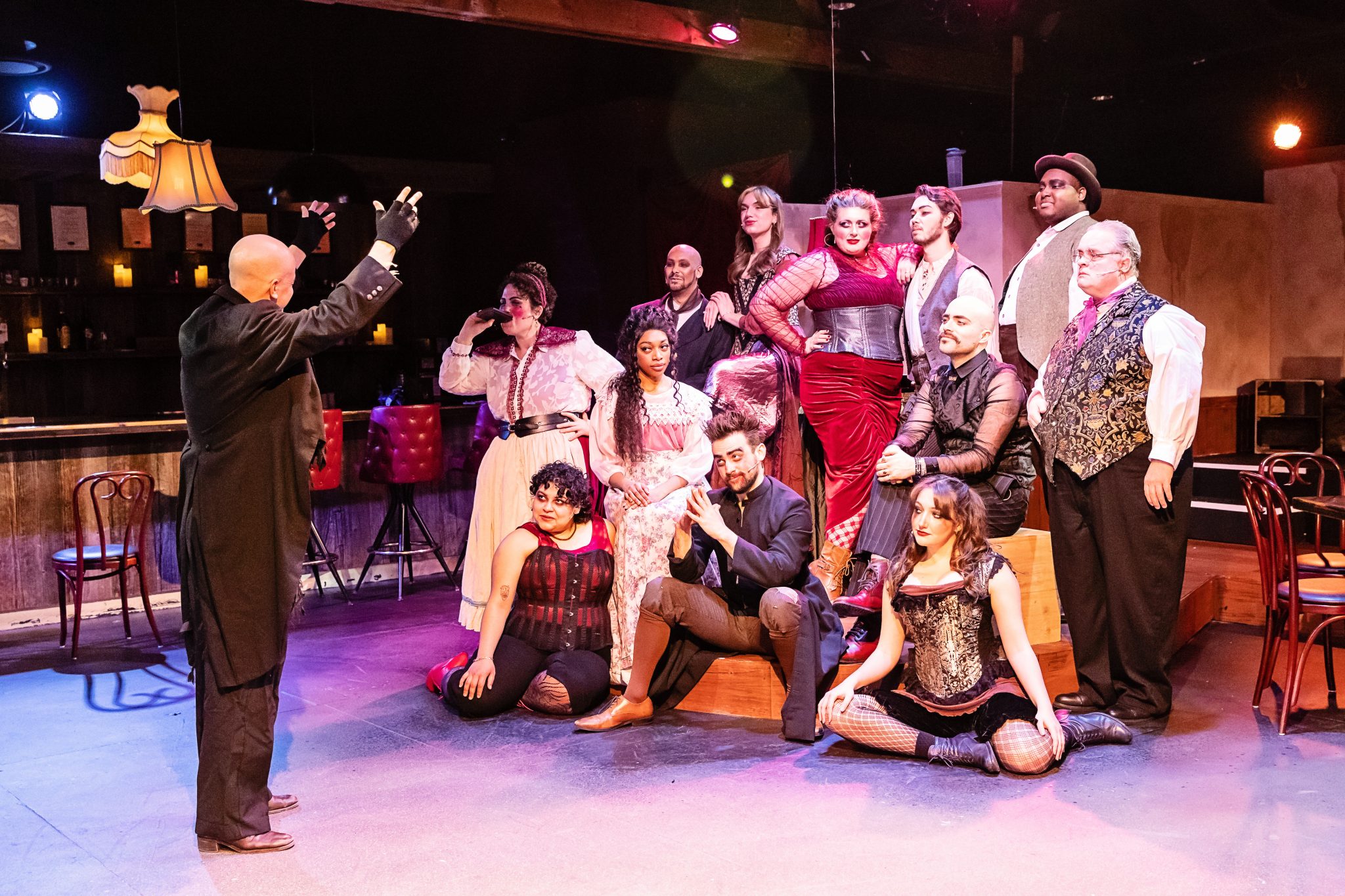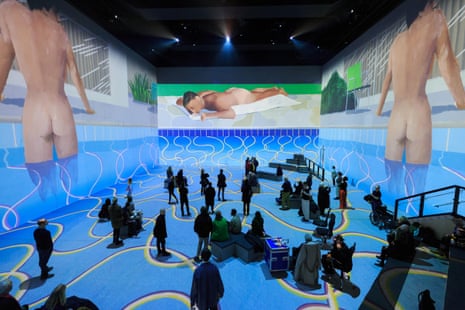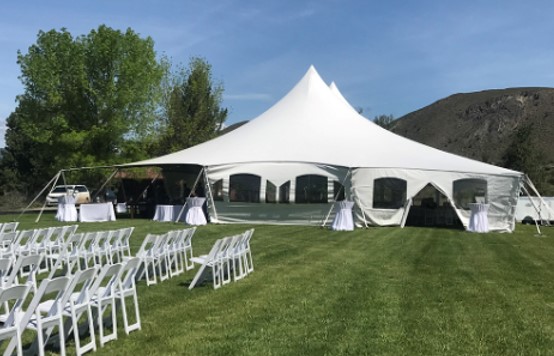
The Solid of “The Threepenny Opera”/Photo: Time Stops Photography
Advised
There’s a instant in “The Threepenny Opera”–Bertolt Brecht’s and Kurt Weill’s 1928 musical, which has been impressively remounted at Evanston’s Theo Ubique Cabaret Theatre–where felony mastermind Macheath (performed by Carl Herzog) expresses annoyance at his ragged gang of cutthroats for not completely appreciating his beloved’s musical expertise. “That’s art!” exclaims the psychopathic antihero. “Art is not good!”
There’s almost nothing “nice” about “Threepenny,” a no-retains-barred assault on just about every element of bourgeois existence, from religion to marriage and spouse and children to the navy to regulation and purchase. Directed by Theo Ubique’s co-founder and creative director Fred Anzevino, this output captures the work’s aggressive rawness and decadent, Weimar-era atmosphere, while preserving it pertinent for a present day audience dealing with our possess century’s manifestations of corruption, injustice and hypocrisy.

Chamaya Moody and Carl Herzog in “The Threepenny Opera”/Image: Time Stops Pictures
The plot–based on British playwright John Gay’s 1728 satirical ballad opera, “The Beggar’s Opera”–concerns the jauntily vile Macheath as he robs, murders and seduces his way throughout the underbelly of a good city, at just about every move revealing further degrees of vice, cant and degradation. Among the his acquaintanceship are Mr. and Mrs. Peachum (Thomas M. Shea and Megan Elk), who control the city’s begging racket, instruction and outfitting squadrons of panhandlers who benefit from the simple fact that, as Mr. Peachum puts it, “The highly effective produce poverty but cannot bear to search at it.” The couple makes generous use of the Bible in creating their indicators and posters, noting that “the Fantastic Reserve includes four or five true moneymakers.”
Macheath operates absent with Polly, the Peachums’ young and oddly innocent daughter (performed by Chamaya Moody), arranging to marry her in the fetid stable that serves as his gang’s headquarters. But of course there are other girls in the dashing Macheath’s daily life, which includes Jenny, a prostitute (Liz Bollar), and Lucy (Nathe Rowbotham), the daughter of Tiger Brown (Michael Mejia), the law enforcement main who is also Macheath’s old military buddy and protector. That friendly angle comes in helpful from the Peachums, who want their daughter back and Macheath wrecked, by any suggests needed.
It all seems much more significant than it is. Brecht reminds us time and yet again that his characters are purely social forms, not complicated and emotionally alive human beings, and that the operetta-like situation is just that, an entertaining fable somewhat than a plausible narrative. It’s the tunes that are the raison d’etre for “Threepenny,” and the gifted forged, underneath the guidance of music director and pianist Ryan Brewster, belt out an anthology of classics–not just the anthemic “Ballad of Mack the Knife,” but also “Pirate Jenny,” “Army Song” and “Tango Ballad”–with aplomb. The singers infuse Weill’s harsh, dissonant chords and Brecht’s typically unrhymed, unconventional and plainspoken lyrics with passion, biting into these kinds of lines as, “We crave to be a lot more kindly than we are … But you know, circumstance will not have it so.” Listed here and in other places, Marc Blitzstein’s translation is skillfully executed, hitting us with aphoristic, unembellished fact.

Megan Elk and Thomas M. Shea in “The Threepenny Opera”/Photograph: Time Stops Pictures
Herzog, elegantly costumed by Cindy Moon, is a cool and fastidious Macheath, a thug with type and social pretensions, and the golden-voiced Moody acquits herself perfectly as his deluded bride Polly, whose naïveté might be just a bit cosmetic. But it’s Shea and in particular Elk who steal the display as the comically rapacious–and repulsive–Peachums. With her closely rouged lips and maniacal smile, Elk’s Mrs. Peachum comes off as the awful, puppet-like Judy to her husband’s brutally pragmatic Punch.
Director Anzevino can make fantastic use of Theo Ubique’s open area. As the performers flow into among the tables, seats and bar, the show can take on a flowing, energized immediacy, drawing us into the action. Maggie Fullilove-Nugent earns kudos for her innovative lighting design, utilizing darker tints and a watery mist to counsel Soho’s dank, shadow-shrouded streets, a location of darkness each bodily and non secular.
Finally, that darkness gets monotonous about the play’s two-and-a-fifty percent several hours, which include intermission. This is owing in portion to the production’s confined musical accompaniment, which is composed entirely of a piano rather than the small jazz ensemble that’s occasionally utilized. By Act III, the music operate alongside one another, sounding a lot more like Bobby Darin-fashion pop ballads than the sharper-edged, old-timey sounds of chanteuse Lotte Lenya, the spouse of Kurt Weill and the first interpreter of “Mack the Knife.”
The further difficulty is in the songs them selves, every one 1 of which is a somber, vaguely nerve-wracking ode to human weakness, folly and failure. The engage in is so damning of its lower-lifestyle milieu that it will make 1 surprise whether humanity is even well worth saving from the ills of capitalism. It presents by itself as resolutely amoral, in fact, a travesty of traditional ethical values–yet deep down it is relentlessly and even tediously moralistic. To this critic, it has constantly appeared that the play is charged fewer with innovative fervor than with a disgusted, Christian-inflected disillusionment bordering on nihilism. There is a savage wit on screen listed here, but it is not wielded flippantly by the playwright.
With all its conflicts and contradictions–including the reality that this anti-capitalist broadside is currently being offered by a non-union company–this is nonetheless the solitary best Brecht generation I’ve ever found on a Chicago stage. Veteran director Anzevino and business know what operates in cabaret, and the concept–dark, wide and boldly theatrical–is correct on goal. This “Threepenny Opera” is not fairly, but it is certainly art. And if the theater gods are just, it will be a hit.
Theo Ubique at the Howard Avenue Theatre, 721 Howard Road, Evanston, (773)939-4101, theo-u.com. $45-$55. Via April 30.




More Stories
Top Benefits of Joining PAFI : The Indonesian Pharmacists Association
4 Industries That Use Large Industrial Tents
Beauty Found” – Asheville Made